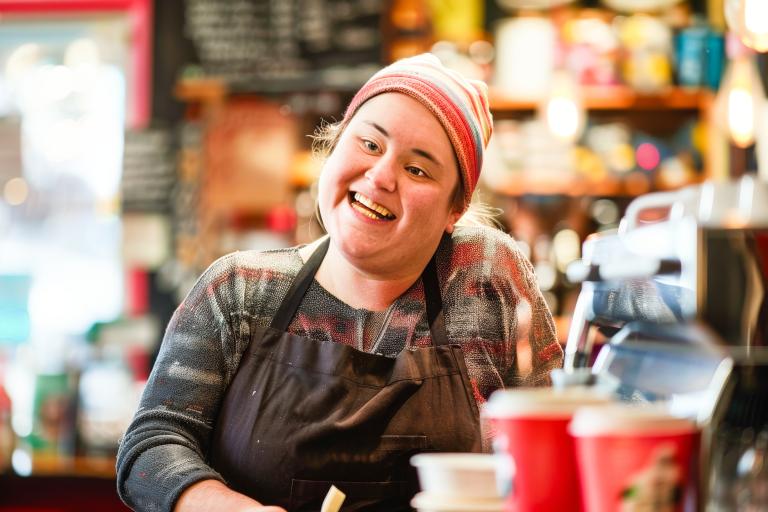
“I have the right to live a life free from abuse”
An easy read information leaflet for adults in Leeds.
Download here:
This what the leaflet says:
The Leeds Safeguarding Adults Board has arrangements in place to protect people from abuse. This leaflet provides information about:
- What abuse is
- How it can be reported
- What happens after abuse is reported
1. Who is at risk?
An adult at risk is a person who is:
- 18 years or older.
- Has care and support needs. This may be because of their age, disability, mental health needs, drug or alcohol misuse or other condition; and
- Is unable to protect themselves
2. Abuse can happen anywhere
- At home.
- In a residential or nursing home.
- In a hospital
- In a day service
- At work or in an educational setting
- On the internet or phone
- In a public place or in the community
3. Abuse can be caused by anyone
- A partner or relative.
- A friend or neighbour.
- Sometimes a person can pretend to be your friend so they can abuse you.
- This is sometimes called Mate Crime. A paid or volunteer carer. Other service users. Someone in a position of trust.
- A stranger.
4. Different kinds of abuse
Physical abuse: This involves being hit, slapped or kicked, or being hurt in another way.
Sexual abuse: This is when someone touches your private parts when you don’t want them to, or makes you touch them. It is also when someone talks to you about sex when you don’t want them to.
Psychological abuse: This is when someone makes you feel sad, afraid or not important. This could be by shouting at you, calling you names, or making fun of you.
Financial or material abuse: This is when someone takes something that belongs to you without asking, or makes you give them things.
Neglect: This is when you do not get the help you need. It might include not getting help with your medication, or your care needs, or not giving you enough food.
Discriminatory abuse: This is when someone treats you badly because you are different to them. This is sometimes called Hate Crime. This could be because of your:
• Age or gender
• Sexuality or disability
• Race or religious belief
Modern Slavery: This is when some is forced to work with little or no pay or threatened with violence if they do not work.
Domestic Violence and Abuse: When abuse occurs between partners or family members, it is often called Domestic Violence and Abuse.
If abuse is caused by an organisation, it is often called Organisational Abuse.
Self-neglect: This is when someone might come to harm because they do not look after themselves. This might be not eating or taking their medication or looking after their personal hygiene.
5. What can you do?
- No one should have to live with abuse.
- By reporting abuse, you can help bring it to an end.
- Doing nothing is NOT an option.
Remember:
- Abuse is always wrong, whatever the circumstances.
- You can help the person to be aware of the support available.
- You could give them this leaflet.
- You can use the contact numbers on this leaflet to report abuse and/or to seek advice.
- If someone is injured, you may need to help them to a doctor or call for an ambulance.
- If you think a crime has occurred, you can contact the police.
6. What happens after abuse is reported
When you report abuse, people will:
- Listen to you.
- Take your concerns seriously.
- Respond sensitively.
- Make enquiries about the concerns.
- Consider the wishes of the adult at risk.
7. What will happen next?
- Talk to the police if it is a criminal matter
- Support the adult at risk achieve the changes they want, wherever possible.
- Develop a plan with the adult at risk to keep them safe in the future.
- Consider if anyone else is it at risk.
8. How to report abuse
To report a crime
- In an emergency contact the police: Tel: 999
- If the person is not in danger now, contact the police: Tel: 101
To report a safeguarding concern:
- Contact Adult Social Care: Tel: 0113 222 4401
Not sure what to do?
- You can get information and advice. You can do this anonymously. This means without anyone knowing it is you: Adult Social Care: 0113 222 4401
- Leeds Safeguarding Adults Board website: www.leedssafeguardingadults.org.uk